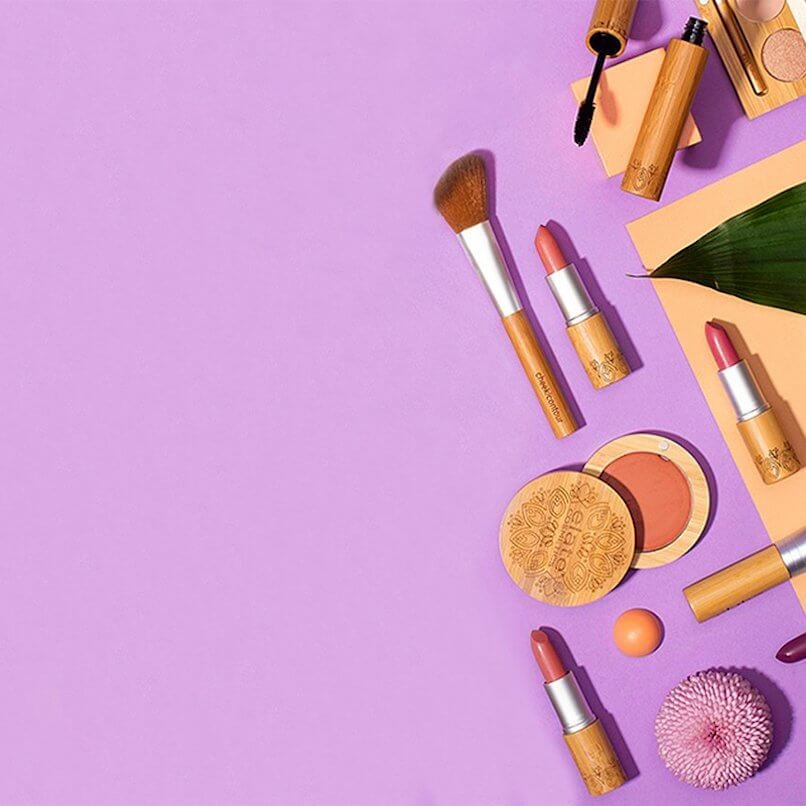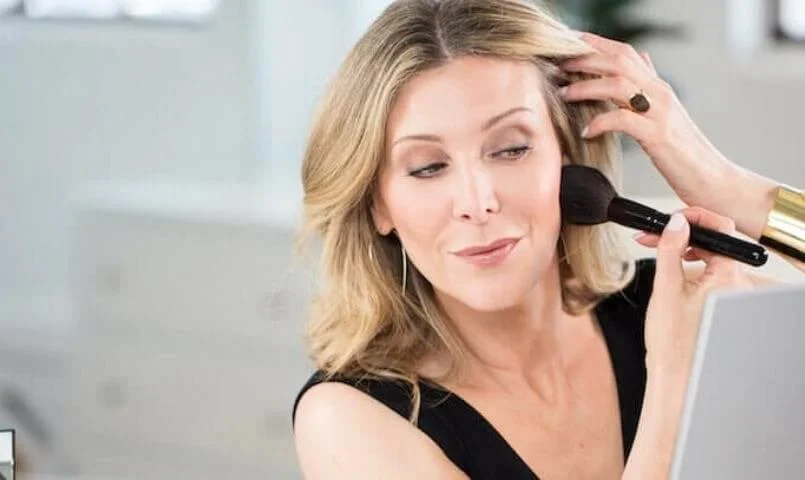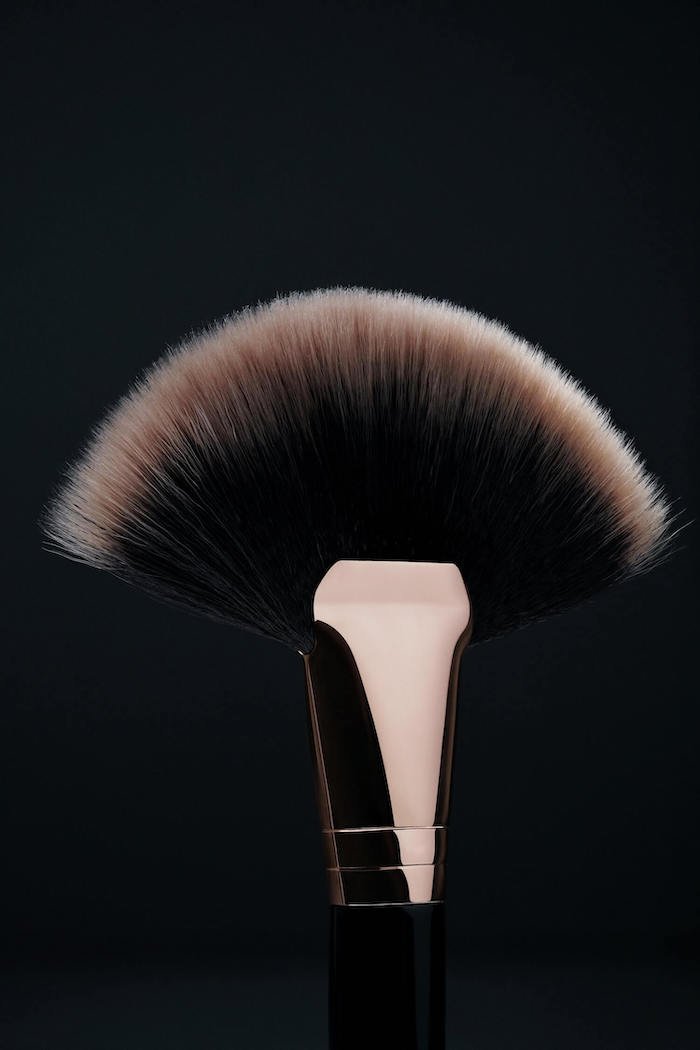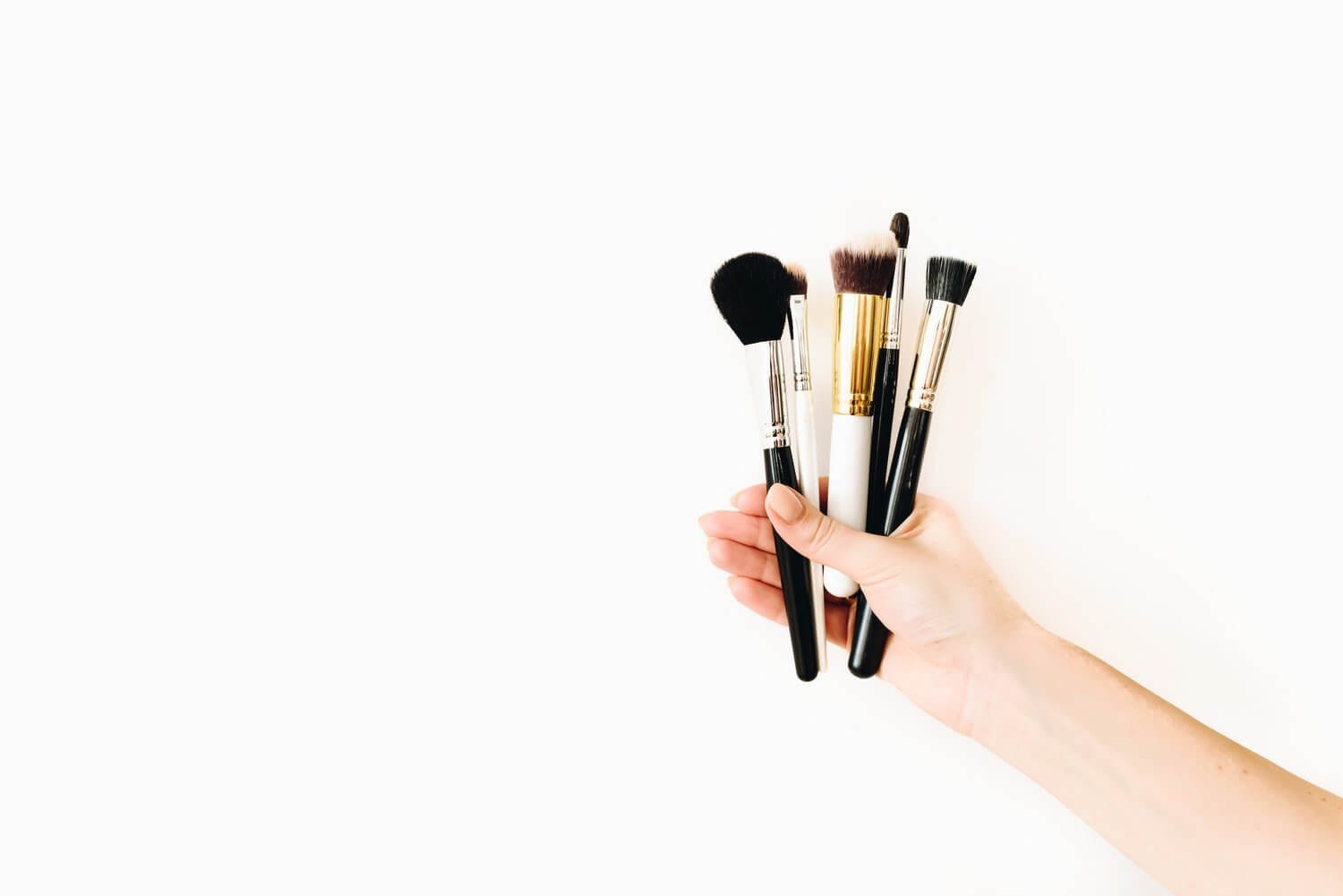The Top Eco-friendly Makeup Brushes Made with Sustainable Materials
A good beauty routine includes taking care of your skin, which means being mindful of what you apply to it.
This doesn’t just refer to your lotions, creams, or the makeup in your makeup bag, but also the tools you’re using to apply these products such as makeup brushes.
Not only should you be washing them thoroughly and regularly, but you may also want to think about investing in a quality brush that has been ethically made with responsible materials.
This blog post will start with a list of sustainable makeup brushes, explore harmful materials found in regular brushes, and a few cleaner materials to look for when buying eco makeup brushes.
Pin this makeup brush guide for later
6 Eco-friendly Makeup Brush Brands for Smooth Application
If you're wondering how you can have high quality, fluffy brushes for your favorite organic makeup, don't stress.
Here are the best makeup brushes to add to your makeup bag! Some of the best things in life are simple, and most of them are made of sustainable materials at reasonable prices.
I personally use Ogee & Ecotools makeup brushes for my makeup!
This post does contain some affiliate links. If you decide to make a purchase The Honest Consumer will receive a commission. Our commission is at no additional cost to you.
Ogee’s vegan friendly brushes
Price Range: $38+
Ogee is well known for its organic makeup, but they also have brushes in their accessories section!
Ogee makeup brushes are my favorite that I have tried. They feel so smooth, move easily, blend well, and are easy to clean.
Their brushes feature a Sustainably-Sourced FSC-Certified Wooden Handle and Cruelty-Free Vegan Fibers. Plus, they have a zero waste brush cleanser that is made with organic ingredients.
I was gifted the Brush Bundle, but you can also purchase the products separately! Learn my thoughts on the brushes in my Ogee makeup review!
EcoTools Makeup Brushes Made with Recycled Materials & Bamboo
Price Range: $5-$14
Ecotools supplies you with what you need for a mindful self-care routine with their range of vegan and cruelty-free bath and beauty products, including makeup brushes and sponges.
Ecotools eye and face brushes are made with Taklon bristles, recycled aluminum, bamboo, and post-consumer recycled materials.
Using 88% less plastic, they utilize biodegradable paper for their packaging.
I also have a few brushes from Ecotools! I purchased these a while back and they’ve lasted me a few years already!
Elate Vegan & Cruelty Free Makeup Brushes
Price Range: $23-$28
Elate is 100% vegan and cruelty-free. Consumers have the option of returning brushes to them when they’re done, so they can recycle it.
Elate is a Certified B corporation and they work with the Think Dirty app which allows you to check on the ingredients and toxicity rating of any of their products.
Elate’s multiuse makeup brush is made from Taklon and renewable bamboo, which is sourced from a green-certified, fair trade manufacturer and chosen based on their FSC certification.
Their vegan bristles still offer smooth application so you can freely apply your powder foundation or achieve the perfect smoky eyes without compromising quality or your values.
Ilia’s Sustainable Makeup Brushes
Price Range: $24-$40
Beauty brand Ilia has five makeup brushes to offer: a blending brush, foundation brush, complexion brush, finishing powder brush, buff brush that makes a great concealer brush, and shadow brush.
The handles are made from aluminum and FSC-certified wood and the bristles from BPT. None of their products are tested on animals and they are Leaping Bunny certified.
They use recycled aluminum, glass components, and responsibly sourced paper for their packaging.
Partnering with PACT, Ilia collects empty beauty products to recycle and break down responsibly. U.S. customers can send in up to 10 empty products per month and they don’t need to be Ilia products.
It's true that good things can come in small eco-friendly packaging!
Inika’s Eco-friendly Brushes Made with Vegan Materials
Price Range: $22-$45
Committed to using ethically sourced ingredients to make products that are vegan and cruelty-free, Inika is also certified organic and halaal. Ninety percent of their packaging is made from sustainable and reusable materials.
Inika’s makeup brushes are made from vegan fiber bristles with handles made from biodegradable PLA (polylactic acid, a type of polyester made from fermented plant starch like raw corn and cassava).
Their vegan brushes made with natural ingredients are a great choice!
Jenny Patinkin’s Vegan Makeup Brush & Tool Set
Price Range: $20-$36
Started by beauty expert and makeup artist Jenny Patinkin, her brand focuses on eco-friendly and user-friendly beauty tools including makeup brushes. There are various types available including brow brushes, blend brushes, bronzer brushes, and eye shadow brushes.
Made with synthetic fiber filaments, the brushes are vegan and come in reusable packaging.
These vegan makeup brush sets are perfect for your daily routine and made to the highest standards possible. Jenny Patinkin’s six piece makeup tool set can be purchased for $150.
What are Makeup Brushes Made From?
Makeup brushes generally consist of three components: the handle, the bristles, and the ferrule, which is what connects the handle and the bristles. These components may be all natural, all synthetic, or a combination of both.
Synthetic components include plastic handles and polyester or nylon bristles.
Natural makeup brushes are made with wooden handles, aluminum ferrules, and bristles made from animal hair and fur such as mink, squirrel, fox, bear, horse, and goat.
Are There Any Health Impacts from Makeup Brushes?
Cosmetics are barely regulated, which means brands can put almost anything into their products. This virtual free-for-all is exacerbated by limited testing and the use of ingredients that are not well studied, and whose effects could be unknown.
This refers more to makeup than it does to its tools, but since you’re using those tools to spread the makeup over your face, it’s worth noting.
While natural products are often preferred in a green, clean, and sustainable lifestyle, when it comes to makeup brushes, natural is not always better.
Animal bristles used to be popular because they are good at applying makeup.
Regardless of what your bristles are made of, it is important that you clean your brushes to avoid skin irritation, breakouts, and clogged pores, as well as more serious effects such as fungal infections, E. coli, or a staph infection.
However, using animal bristles may place you at greater risk of these effects because makeup, dead skin cells, dust, bacteria, and other contaminants can get caught in the cuticles of the animal’s hair, dirtying the brushes and allowing bacteria to grow.
Makeup remover is also not the best way to clean your brushes, so make sure you're using gentle, non-toxic clarifying soap.
The choice of a makeup brush with natural bristles may also be negated by the concern for animal welfare. The hair and fur used in bristles are often by-products of the fur trade, an industry notorious for its cruel treatment of animals.
Moreover, the horrific conditions in which animals are kept make it easy for bodily fluids to mix, leading to an increased risk of pathogens flourishing.
Keeping animals in captivity can lead to more deadly viruses spreading around the world and potentially creating another pandemic.
Are there any environmental impacts from the materials?
Impact from Materials
Sourcing materials for makeup brushes from the fur trade also has adverse environmental impacts.
As mentioned, there are biological hazards to be wary of when working with animals.
Besides the risk of the unsanitary conditions they are kept in, there are further biological and environmental risks when their bodies are disposed of, because they may be full of chemicals, viruses, and diseases.
Incinerating bodies is not a solution either, because this method only contributes to pollution as toxic emissions are emitted.
Creating synthetic fibers of nylon and polyester bristles and plastic handles comes with its own host of problems since sourcing virgin materials from the Earth to make synthetic products has a plethora of negative environmental impacts.
Aluminum, popularly used for the ferrule, requires a lot of energy and water to manufacture not to mention the loss of habitat and biodiversity and increased carbon emissions and erosion that come from mining this metal.
Makeup Brush Disposal
At the end of your makeup brush’s life, it still has an impact on the environment.
When synthetic brushes are disposed of they end up in landfills and waterways, shedding microplastics when they are made from synthetic components.
This may feel like a catch-22 if you want a vegan, cruelty-free brush but also don’t want your tools to be made of plastic.
But there are ways in which you can minimize your impact:
recycle your brushes (check the packaging to make sure the components are in fact recyclable), look for takeback programs from brands, use old brushes for art projects, and look for brushes made with more eco-friendly materials like sustainable wood.
Eco-friendly Materials to Look For When Shopping for Makeup Brushes
Animal hair makeup brushes used to be popular not only because of their good application ability but also due to their versatility. Different animals could be used to make different brushes, depending on their purpose.
As the mistreatment of animals starting coming to light in animal testing and the use of animal products, nylon bristles started replacing natural ones – but the stiff, flat bristles made it difficult for powder to stay on the brush.
In recent decades, Taklon (sometimes referred to as PBT or polybutylene terephthalate) has become popular.
While this is made of synthetic materials and not a perfect eco-friendly solution, it has resolved the cruelty free issue and is a more sanitary way to apply make-up.
Made from thermoplastic polyester, these soft synthetic bristles mimic the efficacy of animal bristles without using any animals; and since Taklon does not have cuticles that can trap dirt and other contaminants, it’s a more hygienic option too.
Taklon also ticks the versatility box, as bristles can be made with different textures depending on the purpose of the brush.
For the brush handles, reclaimed wood and recycled plastic bottles are more sustainable options. Keep an eye out for certifications such as FSC (Forest Stewardship Council) to ensure the wood has been responsibly sourced.
Hopefully this guide has given you some options for the next time you swap out your makeup brushes!
MEET THE AUTHORS
Product Testing & Review
Emily Waddell is the founder of The Honest Consumer. She has always been passionate about business for good and has a Bachelor degree in Social Entrepreneurship. She currently lives in Seattle where she practices imperfect sustainability. When she’s not writing, Emily enjoys supporting small businesses, clean eating, ethical fashion, and practicing slow living.
Industry Research
Claudia Hauter is a South African writer, copy editor, and content creator with degrees in Drama and Anthropology. She works in television managing web content. When she isn’t reading or writing, she’s walking her dog, finding small businesses and markets to support, or attracting butterflies and bees with her vegetable garden. Learn from Claudia on Twitter or Instagram.
More Sustainable Beauty Content to Read:
For more ethical & sustainable fashion tips be sure to follow The Honest Consumer on social media, subscribe to our newsletter, & check out the Ethical & Sustainable Brand Directory.














